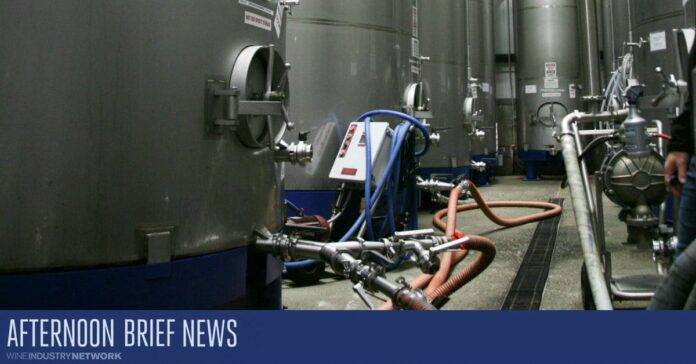A Spanish Breakthrough in Low-Alcohol Winemaking
In recent years, the wine industry has faced numerous challenges, particularly in relation to the changing preferences of consumers and the impact of duty hikes on wine pricing. Amidst this evolving landscape, a remarkable innovation has emerged from Spain: a new, non-dealcoholized white wine that has garnered significant attention and praise from industry experts. One prominent Master of Wine has even referred to this development as a “gift to the UK wine industry,” highlighting its potential to reshape how low-alcohol wines are perceived and enjoyed.
The Rise of Low-Alcohol Wines
As health-conscious consumers increasingly seek alternatives to traditional alcoholic beverages, the demand for low-alcohol wines has surged. The shift towards moderation has prompted winemakers to explore innovative methods of production that maintain the integrity of wine while reducing alcohol content. This trend is not only about catering to consumer preferences but also reflects a broader societal movement towards healthier lifestyles and responsible consumption.
Historically, many low-alcohol wines have been produced through dealcoholization processes, which often strip the wine of its original character and flavor. This has led to a perception that low-alcohol wines are inferior to their full-bodied counterparts. However, the new Spanish offering challenges this notion by providing a compelling alternative that retains the essence of traditional winemaking.
The Innovation Behind the New Wine
The breakthrough wine from Spain employs an innovative approach that allows for the natural fermentation process to occur while limiting the final alcohol content without resorting to dealcoholization. This technique not only preserves the wine’s flavor profile but also enhances its aromatic complexity. The winemakers have meticulously crafted this wine to ensure that it delivers a satisfying drinking experience, making it an attractive option for those who are looking to reduce their alcohol intake without sacrificing quality.
Furthermore, the wine is made from high-quality grapes sourced from renowned vineyards in Spain. The careful selection of grapes, combined with the expertise of the winemakers, results in a product that reflects the unique terroir of the region. This attention to detail is crucial in producing a low-alcohol wine that stands out in a crowded market, appealing to both wine aficionados and casual drinkers alike.
The Impact on the UK Wine Industry
The introduction of this non-dealcoholized low-alcohol white wine is poised to make a significant impact on the UK wine market. With the recent duty hikes on alcohol, consumers are becoming increasingly selective about their purchases, seeking value without compromising on quality. This new Spanish wine not only meets the demand for lower alcohol content but also offers a taste experience that rivals traditional wines.
Industry experts are optimistic about the potential of this wine to attract a new demographic of consumers who may have previously shied away from wine due to health concerns or alcohol preferences. By providing a high-quality, flavorful alternative, the Spanish innovation could encourage more people to explore wine, thus expanding the market and driving growth within the industry.
Moreover, the success of this wine could inspire other winemakers to adopt similar methods, leading to a broader range of low-alcohol options available to consumers. As awareness of the health benefits associated with moderate drinking continues to grow, the demand for such innovative products is likely to increase, further solidifying the position of low-alcohol wines in the global market.
Consumer Reception and Future Prospects
Initial reactions to the new Spanish low-alcohol white wine have been overwhelmingly positive. Wine enthusiasts and casual drinkers alike have praised its balance, flavor, and overall drinking experience. The wine’s ability to deliver a satisfying taste without the excessive alcohol content resonates with a diverse audience, making it a versatile choice for various occasions, from casual gatherings to more formal events.
As the market for low-alcohol wines continues to evolve, it will be essential for winemakers to maintain a focus on quality and innovation. This Spanish wine serves as a benchmark for future developments in the sector, showcasing what is possible when tradition meets modern winemaking techniques. The success of this product could pave the way for further advancements in low-alcohol offerings, ensuring that consumers have access to a wider range of choices that do not compromise on taste or enjoyment.
Conclusion
In conclusion, the introduction of this non-dealcoholized low-alcohol white wine from Spain marks a significant milestone in the winemaking industry. As consumers increasingly seek healthier alternatives without sacrificing flavor, this innovative product stands as a testament to the potential of modern winemaking techniques. With its promising reception in the UK wine market, this Spanish breakthrough not only represents a shift in consumer preferences but also heralds a new era for low-alcohol wines, offering exciting possibilities for both producers and wine lovers alike. The future of winemaking looks bright, with creativity and quality leading the charge towards sustainable and enjoyable drinking experiences.


